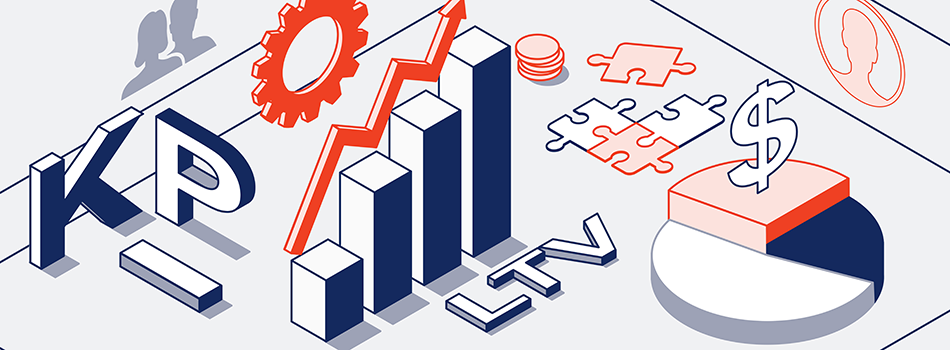Digital technologies have become an integral part of modern life. No wonder Bill Gates said: “If you are not on the Internet, then you are not in business.” It’s true! Digital marketing has become one of the main driving forces of business in the 21st century. And there is no doubt that in the future its role will only increase.
In today’s article, we want to tell you in detail what digital marketing is, what is the history of its formation, what channels modern business should use and what results it allows to achieve.
What is digital marketing
Digital marketing is a general term for the marketing of goods and services, which uses various digital channels to attract and retain the target audience.
And here there can be some confusion. Many novice marketers associate digital marketing exclusively with online promotion and sales channels. Actually this is a mistake. TV and radio advertising, SMS mailings, and even billboard marketing also fall into this category. That is, Internet marketing and digital marketing are different concepts, although they often intersect.

How important is this channel in principle?
According to the results of a marketing study by Think with Google, in 2021 alone, the eCommerce industry in the world grew by 30%. Online content is getting more and more accessible every year. And consumers are increasingly studying information about a product, service or brand on the Web before buying or ordering something.
The company’s presence in the digital environment and active promotion here is the key to attracting a new audience and increasing its loyalty. In addition, digital marketing, unlike traditional marketing, makes it possible to collect and analyze data on the results of promotion in order to adjust the marketing strategy, increasing its effectiveness.
Digital marketing channels
Digital marketing is really a wide variety of points of contact of the target audience with the brand and its content. But it is important to understand that each of them has its own advantages and disadvantages. And not all of them are universal. Something works better for the B2B segment, and something works better for B2C. Somewhere the most effective solution is to launch a comprehensive SEO promotion. And somewhere – contextual advertising or email-mailing.
It is not necessary to use all available digital marketing channels at once. On the contrary, sometimes it is better to reduce their number to two or three, avoiding unjustified budget overruns.
PPC (Pay Per Click Advertising)
Pay-per-click contextual advertising is an important element of digital marketing, the main advantage of which is a quick effect. Advertisements are shown to users directly on the search results page. That is, in this way, without SEO, you can be in the top of search results for relevant key queries.
PPC advertising is used not only in search, but also on Facebook and Instagram. And this is also a promising direction for those who want to reach a large audience, make themselves known, draw attention to a new product and increase the number of loyal users.
Content Marketing
Promotion through different types of content allows you to inform potential customers about your brand and your offers, emphasize your advantages, increase brand awareness and relevance in the eyes of the audience.

Among the main content marketing tools we can name the following:
- blog posts – informative, advertising and SEO articles that simultaneously increase the company’s credibility in the eyes of the consumer, provide useful knowledge and promote organic promotion on the Web;
- e-books, instructions, checklists and the like – useful content designed to teach users something new, convey useful information to them, share cases on using your product, etc.;
- infographics – capacious and informative content, with the help of which you can convey certain information to the user as concisely and visually as possible;
- educational videos, podcasts, etc. — different formats of audiovisual content, which are more visual and easy to read.
An important piece of content marketing advice: don’t make it overtly promotional. Otherwise, it will be poorly received not only by users, but also by search algorithms. Selling content should be no more than 20-30%. The rest is informative and entertaining.
SMM marketing
Social networks are extremely effective digital marketing tools available to everyone. These are convenient platforms not only for promoting goods and services, but also for direct communication with the target audience. No site will give you the same feedback as a page on Facebook or Instagram. Therefore, the presence of your business in social networks is a must!
Among other things, social media marketing provides several less obvious benefits:
- a very precise definition of your target audience. It is in social networks that you can study in detail the parameters of your target audience: gender, age, income level, place of residence, list of interests, and so on. And this, in turn, allows you to flexibly adjust targeting and get more profit from targeted advertising;
- comprehensive data analysis and optimization of advertising costs. Advertising cabinets in popular social networks provide comprehensive statistics for each advertising campaign and for each activity. This means that you can conduct detailed analysis, adjust your promotion strategy, improve creatives and achieve better results with a smaller budget.
But all this works only if experienced specialists are engaged in SMM promotion. Of course, you can take on some of the tasks. But, if you are not sure of your knowledge and skills, it is better to contact the experts!